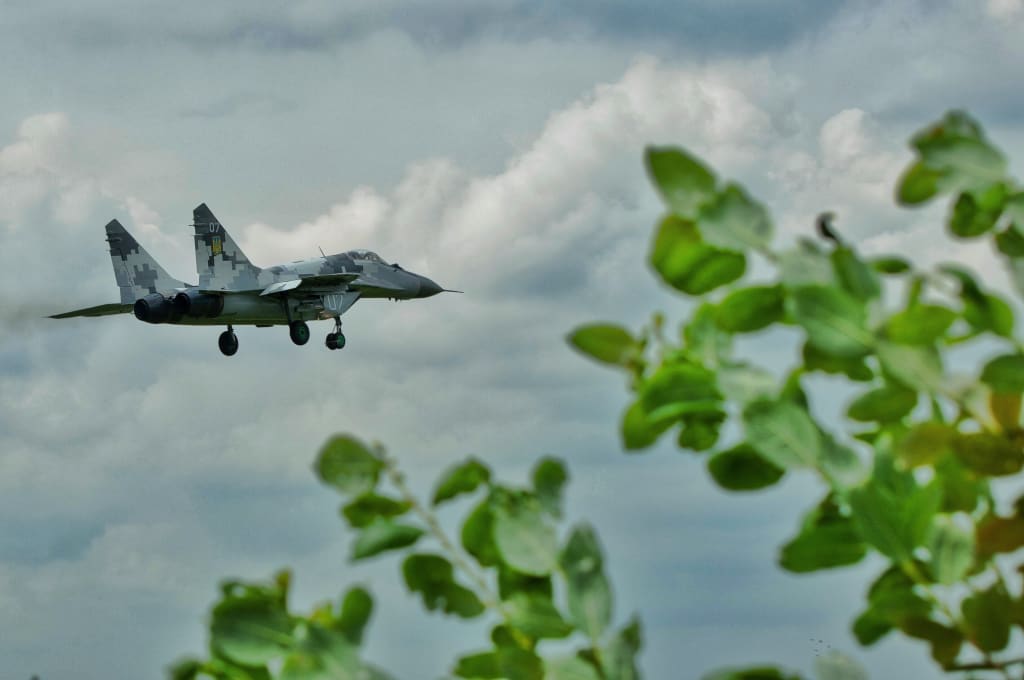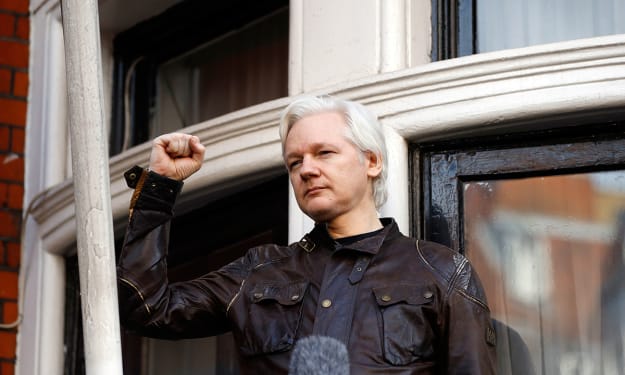Russia’s Grudge with NATO
Read this if you want a concise explanation of Russia’s motivations and what the “West” keep’s misunderstanding.

Updated Note: As of February 24th 2022, Russian Federation forces have invaded the sovereign state of Ukraine. This article is meant in no way to defend the on-going violations and attacks perpetrated by the Russian military.
This article can be viewed as a companion to my earlier article Conflict of Interest | Ukraine 2022 Update look forward to a follow up article Why Now? Putin's Ukrainian Gambit in the coming days.
Okay, so if you're following the news lately you're probably hearing 'Ukraine this' and 'Russia that', maybe something about NATO, and most certainly the fears that World War Three looms daily.
The current tensions stem from sins of the Cold War, and specifically the way the "losers" were treated at the end of it.
From the Russian perspective, Russia never "lost" the Cold war. If you want to split hairs you could claim that the Soviet Union lost the Cold War, and that Russia isn't the same thing. The West has consistently argued otherwise in our rhetoric and policies. Either way, Russia saw the collapse of the Soviet Union as a result of internal corruption, a weak economic system, and western interference. They have not however, ever seen the end of the Cold War as a defeat by the West. With that in mind, Russia has taken specific notice of how Japan and Germany were treated at the end of WW2, in stark contrast to how Russia was treated at the end of the Cold War.
Russia was not rebuilt, Russia was not aided in developing new policies and a stronger economy. Russia was not given the benefit of the doubt. Russia was not respected as a former imperial power, now adjusting to a new modern world.
Russia was, however, viewed suspiciously and blocked at almost every turn from regaining its former glory. I don't say this to justify any of Russia's aggression since the 1990s or their current actions, only to point out where immediately our relationship with Russia started off on the wrong foot.
This brings us back to NATO. NATO has commonly and historically been seen as a military alliance counter to the Soviet Union. So when the USSR collapsed, you could understand why Russia might be confused as to why NATO was still a thing. When the Allies defeated the Axis powers in WW2, they joined together afterwards to rebuild and cooperate. Today, Germany and Japan are close allies to the USA, Britain and France. This is not so with Russia and NATO. So, again, why does NATO exist today? Supposedly to keep Europe safe from Soviet aggression, keep the peace, and generally promote a stronger safer Europe. The Hill reports the following:
"NATO was established in 1949 as a bulwark against the Soviet Union. The Soviet Union collapsed in 1991, yet NATO did not disband. Instead, it added 12 member countries in the ensuing 31 years. Russia views NATO's continued existence and expansion as targeted toward itself. And it justifies its foreign policy moves as defensive reactions to NATO's actions." - The Hill
At times Russia has even floated joining NATO themselves. Surprisingly enough this happened even during the Cold war. The Wilson Center explains how as early as 1954 representatives from Russia/USSR proposed joining NATO, and NATO's response:
"The document below is a translation of V. M. Molotov's proposal to the Soviet Presidium in March 1954 that the USSR should issue a diplomatic note to the Western powers stating its willingness to consider joining NATO. The background to Molotov's memorandum was the launch of the Soviet campaign for European collective security at the Berlin Conference of Foreign Ministers in February 1954. At that conference Molotov proposed the Soviet alternative to western plans for a European Defense Community (EDC) involving the participation of a rearmed West Germany - the conclusion of a pan-European collective security treaty. This proposal was linked in tum to a further set of Soviet proposals on the German question, including Germany's reunification and neutralization in the cold war.
Molotov's collective security proposal was rejected by western representatives on two grounds. Firstly, because the United States was excluded from the proposed treaty and relegated, together with Communist China, to observer status. Secondly, because the Soviet proposal aimed, it was said, to disrupt NATO as well as halt the formation of the EDC. Molotov responded to these criticisms by saying that the Soviet proposal could be amended and that he was open to persuasion about the value of NATO as a defensive organization." - Wilson Center
Again, even later in 2000, Russian President Vladimir Putin told interviewer Oliver Stone that he had floated the idea of joining NATO to US President Bill Clinton. The new Russian argument for joining NATO looked something like "If you never want Soviet aggression to return, what better way than to invite Russia into cooperation with NATO". Russia was denied, as they have always been denied.
Almost 30 years later, Russia is no longer confused. They have drawn their own conclusions on the purpose of NATO. Perhaps NATO started as a counter-Soviet organization, but it has remained as a counter-Russian organization in their eyes, despite Russia's own attempts (at times and earlier in history) to cooperate with the west. Russia now has all the evidence they need, to see NATO as a direct and intentional threat to Russian security and success.
Understanding this, it's not hard to see why Putin and Russia would see talks of Ukraine joining NATO as a last straw. According to Russia, they have been unfairly attributed a moral debt balance for their role in the Cold War, left out of the reconstruction process, and have seen an anti-Soviet alliance stick around only to stay in the way of Russia well after the collapse of the Soviet Union. In Russia's eyes, Russia was never given the chance to be anything but what the West feared they might be. In some ways, the West created an even more vengeful non-comunist Soviet revival within the Russian Federation because of how they treated them after the war was over.
Being an ungracious winner doesn't often win you any points with the former competition.
Check back in a few days! Learn how this sour taste has influenced Putin's intentions toward Ukraine and why the clock is ticking on Russia's window to exert itself in my next article: Why Now? Putin's Ukrainian Gambit
Other platforms:
Medium.com: @elijahrha
Photo Instagram: @elijahrha
News Instagram: @hrg.stories
Twitter: @elijahrha
Youtube: Sunkrum by Elijah
Additional Reading: Catching Up With Chernobyl
About the Creator
Elijah Aikens
Political Scientist by degree, photographer by accident. I like cats, cars, and cameras. I also know a little bit about airplanes and politics.
Enjoyed the story? Support the Creator.
Subscribe for free to receive all their stories in your feed. You could also pledge your support or give them a one-off tip, letting them know you appreciate their work.






Comments
There are no comments for this story
Be the first to respond and start the conversation.